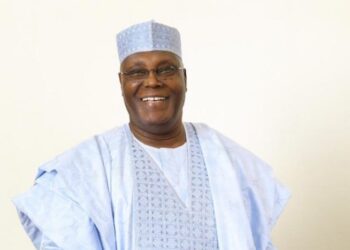Recently, Nigeria has become the poverty capital of the world, this has worsened over the past two years. Millions of Nigerians are currently suffering from the worst of cost-of-living crisis in a generation, the Financial Times said, urging President Bola Tinubu to prioritise solving food inflation.
The Financial Times on reported on Tuesday, in its assessment of Tinubu’s government within two years, “is in better shape than at any time in the past decade” and that the Nigerian president has “stabilised the economy and laid the groundwork for a broader recovery.”
However, the UK-based newspaper admitted that this “may come as a surprise — or even sound like a sick joke — to tens of millions of Nigerians who are suffering the worst cost-of-living crisis in a generation.”
The FT noted that Mr Tinubu must prioritise solving food inflation, tax reform, banditry and terrorism.
“First, his government has to tackle inflation–still running at 24 per cent–with more urgency. Food is the biggest driver. State governments need to increase supply by providing farm inputs, security and better access to market,” wrote the FT.
The paper added, “Most crucial, the government must confront banditry and terrorism with the same single-mindedness as it did distorted monetary policy.”
Previously, the FT wrote a scathing editorial revealing the underbelly of Mr Tinubu’s persona and his nascent administration’s trial and error policies.
An obvious notable reason for the worsening hardship among Nigerians in the past two years is Mr Tinubu’s dual policies of fuel subsidy removal and exchange rate unification. This led to a significant increase in petrol prices, from N145 to over N1000 per litre and later to about N900, while the naira has collapsed from about N450 to a dollar to over N1600 to a dollar.
Food inflation is at 24 per cent under Mr Tinubu’s administration. Within the last two years, Nigeria recorded the largest increase in acute food insecurity globally in 2024, according to the 2025 Global Report on Food Crises published by the Global Network Against Food Crises in collaboration with the Food Security Information Network and UNICEF.
“In West Africa and the Sahel, in Nigeria, an additional 6.9 million people faced high levels of acute food insecurity, bringing the total to 31.8 million,” the report revealed.
The International Monetary Fund (IMF) reported that food insecurity and poverty remain high under Mr Tinubu.
The World Bank’s Africa Pulse report of April 2025 also noted that under Mr Tinubu, Nigeria has the highest number of extremely poor people globally, warning that more Nigerians will be pushed into poverty by 2027.

































